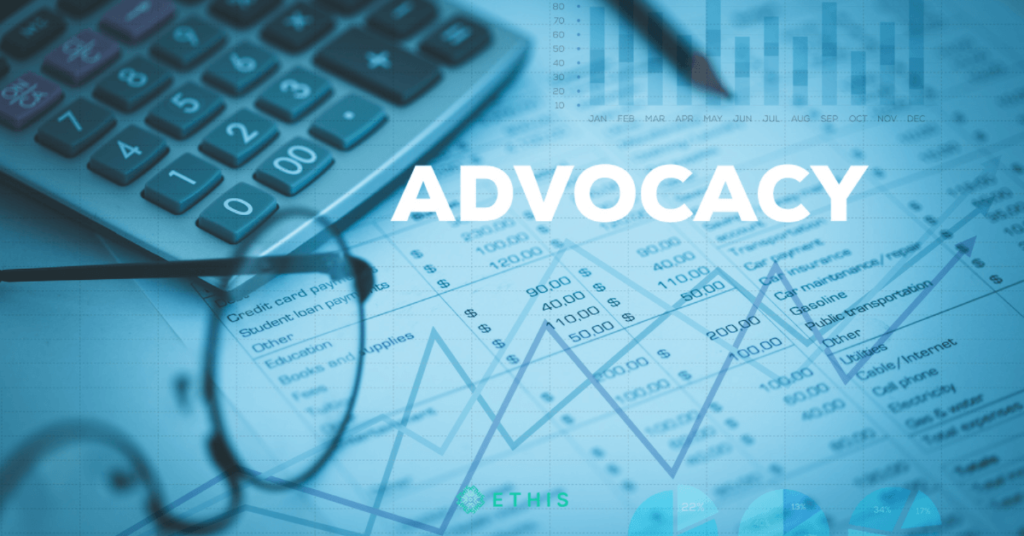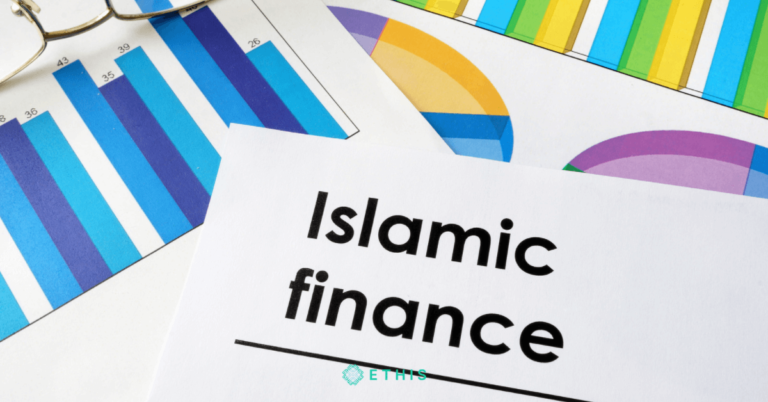
By Zainab Ahsan
The presence or absence of a particular market in a given jurisdiction greatly determines the tendency to invest resources into it.
Emerging markets, specifically those without a developed Islamic Finance market, on the one hand, offer the potential opportunity to leverage the first-mover advantage when it comes to the introduction and scalability of new services and products. But, on the other hand, they present the challenge of ‘institutional voids’ or —the absence of specialised intermediaries, regulatory systems, and contract-enforcing mechanisms, which disincentive foreign investments.
While this may not cause tangible losses to an already burgeoning industry, it does lead to the exclusion of entire markets out of the ecosystem.
However, the technological revolution has led to the increasing digitisation of services, in addition to global competitiveness, the time is ripe to experiment with new classes of products and services that may navigate the aforementioned challenges creatively, thereby bringing excluded user groups into the fold of the ecosystem i.e. through both remotely managed and locally incentivised services.
In practice, an Islamic Finance product can be developed to serve many purposes—not only to satisfy social justice demands. However, no matter the motivation for creating a product (such as to meet market demand), every Islamic financial product must exist under the framework of sharia law.
Islamic finance is steadily making its mark across the world—not only in regions with predominantly Muslim populations but also in the Western countries such as the United Kingdom, France and Germany where a sizeable expatriate Muslim population resides and is increasingly keen to avail Shariah-compliant investment and financing facilities. Asset growth has been particularly pronounced in the GCC countries.
Going Beyond Banking


Although the vast proportion of Islamic Finance assets are in the form of banking assets, it is perhaps time to incentivise and invest in a class of products and services that go beyond ‘banking’ and permeate into the space of personal financial management, entrepreneurial growth, infrastructure finance as well as capital market instruments, to name a few.
From the perspective of international investors and corporations, it has become tougher during the past decade to identify internationalisation strategies and to choose which countries to do business with.
Globalisation has ensured that different governments are seeking to attract entrepreneurs and investments into niche sectors to make their presence felt at the world’s collective table while boosting their growth.
When choosing strategies, therefore, executives need to figure out how the product, labour, and capital markets work—and don’t work—in their target countries. This will help them understand the differences between home markets and those in developing countries.
In addition, each country’s social and political milieu—as well as how it has opened up to the outside world—shapes those markets, and companies must consider those factors, too.
Key Considerations before product launch


The key considerations taken into account before launching a product in a new market would be to understand the workings of its labour market and capital markets to understand the differences between home markets and those in developing countries.
In addition, each country’s social and political milieu—as well as how it has opened up to the outside world—shapes those markets, and companies must consider those factors, too. This data and analysis may easily be sourced or outsourced from local market players who may be willing to collate such information for clients.
The differences that persist throughout the world despite its globalization affirm an ancient dictum of economics—that things are driven by what happens at the margin, not at the core. Thus, in ordinary competitive analysis, what’s important is not the average price but the marginal price; what happens not in the usual case but at the interface of newly erupting conditions. What counts in commercial affairs is what happens at the cutting edge. What is most striking today is the underlying similarities of what is happening now to national preferences at the margin. These similarities at the cutting edge cumulatively form an overwhelming, predominant commonality everywhere.
A few categories of services and products that would allow Islamic Finance enthusiasts to strategically pursue uncharted waters are summarised below. These may be deliberated upon further while keeping in mind the specificities of a given country or market. The following approaches may be adopted independently or collaboratively by both foreign and local players to penetrate and establish solid foundations for an IF ecosystem in an erstwhile passive or inactive market:
1) Personal Finance products and consultancy services: delivering Islamic Finance to the last mile
The lack of a developed Islamic Finance market in a given region implies that the communities native to it have little or no access to professional advice regarding personal wealth management, including but not limited to advisory services related to inheritance management, zakat allocation, mutual fund investments etc.
In addition, the introduction of professional standard services will not only benefit end consumers but also lead to a comprehensive assessment of the collective wealth of communities, which may be of particular relevance for Muslim minority populations, thereby enabling them to identify community resources for effective redistribution and empowerment.
Towards this end, short-duration training courses and knowledge sharing programmes may be organised to incentivise community members to interact with professionals in the space globally and also give impetus to employment in the target market.
Ethis has been conducting numerous webinars to spread the word about Islam among Muslim communities. Recently they launched a series of talks about, “Back to Basics‘ ‘ by Yousuf Sultan, who is the Global Head of Shari’ah at Ethis.
2) Infrastructure projects using the Public-Private-Partnership model: leveraging local and foreign resources for win-win projects


The potential of Sukuk in creating infrastructure and attracting public participation has been recognised across the global market.
While Sovereign Sukuk issuance may not be plausible in jurisdictions that do not currently support Islamic Finance specifically, there does remain the opportunity to leverage upon private and public participation in development projects.
Governments with open trade policies may see this as a way to attract foreign capital into their economies. Thus, the establishment of PPP model infrastructure financing entities would both attract public participation and contribute to the development of a nation while engaging with private corporations.
In the early 1930s, developed economies like the United States and Germany were going through a recessionary cycle. For the quick revival, these economies relied on a slew of mega infrastructure developments like autobahns, highways and railways to attract more investments. This had a manifold effect on GDP growth and economic revival.



Today, countries like India need to relook at the same development model by expanding and expediting their infra projects. While a sovereign bond is neither necessary nor desirable, it is still essential that a long-term infrastructure bond market for the private sector is created.
This can only happen with participation from life insurance institutions and other long-term investors. There is a need to construct a financial bond market that runs for five years and moves assets into a 20-30 year bond / InvIT, essential to ensure constant capital flows. Institutional participation, stamp duty and tax incentives required to make this happen must be accelerated.
3) Impact Investing and Social Finance services aligned with the SDG agenda: Philanthropy management


The Global Impact Investing Network (GIIN), describes Impact investments as “investments made into companies, organizations, and funds to generate social and environmental impact alongside a financial return.”
There is a global urgency across borders to fulfil the Sustainable Development agenda, as evolved from the Millennium Development Goals to the currently prioritized Sustainable Development Goals.
Financial participation and investments that complement this objective are necessary to mobilize the right resources for effective impact and development across socio-economic parameters.
In addition, the understated challenge of climate change is affecting the way governance and regulations are being upgraded to reduce negative environmental impact.
Undoubtedly, the worlds of Islamic finance and impact investing are growing daily, and rapidly. As the industry evolves, there is increasing focus in impact investing on measuring outcomes instead of “impact” or outreach as a measure of the true benefit of an investment.
According to an Impact Investing and Islamic Finance report published by the UNDP, as an evolution of the more mature market for Social Responsible Investing (SRI) that started 25 years ago, impact investing is a newer frontier that goes beyond negative screens and positive intent to actively seek out investments for which there are both social and financial returns.
A recommended strategy for Islamic Finance practitioners considering venturing into new markets would be to identify the key development challenges in the target context and to innovate products that could address those particular challenges.
While this may seem to be a daunting task and risk-averse companies may not find it suited to their tastes, it would anyway be worthwhile to seek collaboration from already established players in the sector and conduct feasibility exercises.
The key advantage this posits is that countries that may have overlooked the need for a separate financial system based on grounds of secularism, for instance, may be able to appreciate the real value that Islamic Finance and Impact investing combined, can bring to the development agenda.
Global Sadaqah has played an important role in impactful investing/social finance, in a way that through their platform the money is disbursed for the right cause which can help and impact individuals.
4) FinTech and RegTech support services: Leveraging the tech revolution to bridge emerging and established markets


As cohesively explained in the article ‘The Globalization of Markets’ by the Harvard Business Review, the force of technology has proletarianized communication, transport, and travel. It has made isolated places and impoverished peoples eager for modernity’s allurements.
Almost everyone everywhere wants all the things they have heard about, seen, or experienced via the new technologies. In common parlance, two vectors are shaping the world today—technology and globalisation. The first helps determine human preferences; the second, economic realities.
Needless to say, it is an accepted reality that technology is not just shaping how business is being done but also helping overcome various impediments that would otherwise block access to new markets. Tele-based consultancy, for example, can be a good first step to providing customised personal finance advisory services.
FinTech and the rise of cryptocurrency are key markers of the current financial industry, and will only gain traction in the face of geopolitical turmoil. The COVID-19 pandemic has already caused huge economic losses to the global economy and tech interventions can help recover it from the hurt and pushback.
As regards the case of regulations, investing in think-tanks that may develop RegTech policy as well as research on the feasibility of Islamic Finance products in untouched markets can help inform policy to enable the penetration of tech-based products.
5) Women-centric products and services to tap into unrealised potential: the need to educate and empower
The statistics gathered by the UN shows that out of 1.3 billion poor people in the world, 70% are women. Therefore, women will have to be liberated, empowered, and emancipated for their respective countries’ economic development.
In Muslim societies where population growth and poverty are high, there is a greater need to create solutions to remove gender disparity and engage women in the developmental agenda.
In this scenario, the Islamic finance industry has a role to play. Islamic banks, moving beyond the theory of natural gender, should design products reflecting women’s needs. Women demographics should be clearly defined while making a business model because so far, the superficially tailored women-based products have failed to enhance women empowerment.
6) Advocacy initiatives: Awareness, Inclusion and Strategic Communication


This particular area is relevant to the local players of markets that seek to bring Islamic Finance into their country.
To ensure demand for IF products is commensurate with the risk and investments made into inducing it in a new market would require the potential clients to recognise its benefits, distinction from conventional products as well as familiarity with basic jargon.
This may be done through online webinars and workshops delivered in local languages. On the plus side, the feedback from such events may gauge customer sentiment and help develop the right market strategies as well.
The recommendation of Strategic Communication is to ensure that the right messaging regarding Islamic Finance is sent to all stakeholders, keeping in mind the socio-political sensitivities of the target market. Thus, this requires investment into market studies, surveys and stakeholder consultations using both top-down and bottom-up approaches.
Conclusion
The Islamic Finance industry poses the advantage of being a prominent representation of ‘alternative’ and ‘ethical’ finance. The growing industry is at the cusp of the convergence of technology and globalisation.
Adding business intelligence to the matrix and innovating new products that are far from merely being shariah-compliant versions of conventional products will surely make the Islamic Finance industry a force to reckon with.
It will not only ensure that the offerings of the IF the market is attractive to stakeholders at all levels but also ensure the achievement of the larger vision of the maqasid of the shariah and make the Islamic Finance ecosystem inclusive, accessible and one that offers equal opportunity to investors across and within all national boundaries.
Therefore, embracing new markets and adapting to emerging contexts is the need of the hour to tap into first-mover advantages and deliver to the last mile.
Read more about Islamic Investing





Top Posts
Islamic P2P Crowdfunding Explained
Halal Money Matters: How Muslims Can Balance Deen and Dunya with Smart Islamic Finance
Halal Investments for Singapore Muslims? It’s time for a shake-up in the Islamic Investments scene.
Smart investment for making Halal money
3 Reasons Why Property Crowdfunding is the Smart Investment for You